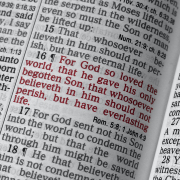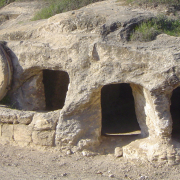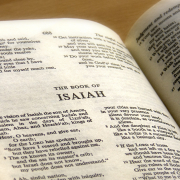What Is the Good News?
The Jewish apostle Paul once wrote, “For I am not ashamed of the gospel, for it is the power of God for salvation to everyone who believes, to the Jew first and also to the Gentile” (Romans 1:16). This same Paul, a devout Pharisee and once a persecutor of Jewish followers of Jesus, eventually came to follow Jesus and proclaimed the gospel to his death after an experience with the risen Messiah. Rome beheaded Paul for preaching the gospel around 67 AD.
So, what is this gospel (which means “good news”) that Paul and other early Jewish followers of Jesus so boldly proclaimed despite threats of persecution?
The Gospel Message
The gospel is the good news that the God of Israel—the Creator of heaven and earth—has sent His promised Messiah to redeem Israel and the nations from sin and death and has promised to return to set up His kingdom of peace and righteousness. In 1 Corinthians 15:1–3, Paul clearly stated the gospel that he preached:
Now I would remind you, brothers, of the gospel I preached to you. . . . For I delivered to you as of first importance what I also received: that Messiah died for our sins in accordance with the Scriptures, that He was buried, and that He was raised on the third day in accordance with the Scriptures.
Notice that Paul repeated the phrase that this gospel was “in accordance with the Scriptures.” He referred to the Jewish Scriptures, the Tanakh, that prophesied of the coming Messiah to save Israel and the nations from their sins. Isaiah 53 provides the most vivid prophecy in the Jewish Scriptures of the Messiah’s atoning work. The prophet Isaiah predicted this suffering servant would die for the Jewish people’s sins:
But he was pierced for our transgressions; he was crushed for our iniquities; upon him was the chastisement that brought us peace, and with his wounds we are healed. All we like sheep have gone astray; we have turned—every one—to his own way; and the Lord has laid on him the iniquity of us all (Isaiah 53:5–6).
The prophet made clear the Messiah would not only suffer for His people’s sins, but also die on their behalf: “He was cut off out of the land of the living” (v. 8). He then wrote that the Messiah would defeat death by rising from the dead: “When His soul makes an offering for guilt, He shall see His offspring; He shall prolong his days” (v. 10).1 The prophet Isaiah’s message was the same message that was preached by Yeshua’s apostles.
Why is this message of the death and resurrection of Messiah “good news” for Israel and the world?
The Bad News
You have probably heard the following expression at one point in your life, “I’ve got good news, and I’ve got bad news. Which do you want to hear first?” We have already presented the good news of the gospel, but to understand why that message is good news, we must first comprehend the gravity of the bad news.
The Scriptures tell us that when our first parents, Adam and Eve, chose to rebel (sin) against God, suffering and death entered our world. We then inherited a proclivity to sin from them. The Tanakh tells us that every single person, without exception, breaks God’s laws and sins against Him (Psalm 14:3). This is bad news because our sin separates us from God. Isaiah wrote,
Behold, the Lord’s hand is not shortened, that it cannot save, or his ear dull, that it cannot hear; but your iniquities have made a separation between you and your God, and your sins have hidden his face from you so that he does not hear (Isaiah 59:1–2).
There is some more bad news. Everyone rebels against God, which separates us from our Creator and results in death. God, through the prophet Ezekiel, said that “the soul who sins shall die” (Ezekiel 18:20).
Since everyone sins, everyone dies. Death has become a fact of life. Benjamin Franklin once said, “In this world, nothing can be said to be certain, except death and taxes.” But the good news is that Messiah has defeated death for all who trust in Him. God took our sin upon Himself and died in our place, as Isaiah 53 describes, so that we can live eternally with Him. He chose to suffer the consequences of our sin because He loves us, as a parent loves his child.
The Coming Resurrection
A day will come when all those who have died will stand before God. The Jewish prophets wrote about this coming resurrection day. Daniel wrote, “And many of those who sleep in the dust of the earth shall awake, some to everlasting life, and some to shame and everlasting contempt” (Daniel 12:2). Who are those who will gain everlasting life? All those who have placed their faith in the one who has defeated death, Messiah Yeshua. These ones will escape “the second death” (Revelation 21:8).
Yeshua said, “I am the resurrection and the life. Whoever believes in me, though he die, yet shall he live, and everyone who lives and believes in me shall never die. Do you believe this?” (John 11:25–26). Yeshua is asking you today, “Do you believe this?”
Footnotes
- To read more about why Isaiah 53 is a prophecy of Jesus, check out our article “Ten Reasons Why Isaiah 53 Points to Jesus.”





 Brian Crawford
Brian Crawford


